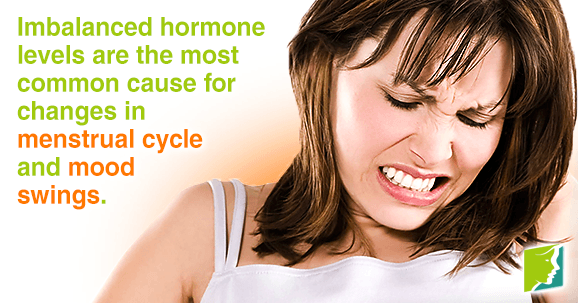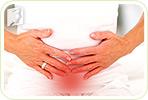It is common for women to experience mood swings during their lives. During a women's menstrual cycle, however, fluctuating hormone levels can increase ones susceptibility to the sensation. This is because hormone fluctuations can seriously impact the brains serotonin levels and consequently rock a woman's emotional stability.
Because mood swings are unpredictable by nature and variable in severity, they can be hard to manage. However, mood swings can also be triggered or intensified by other lifestyle factors and habits. Stressful circumstances or activities can precipitate mood swings or menopause symptoms can also have a significant impact.
Understanding Menstrual Cycle and Mood Swings
Mood swings are sudden alterations to a person's emotional equilibrium. These emotional fluctuations can occur at any time seemingly without any significant cause or they can be a disproportionate reaction to an otherwise insignificant situation. It is common for women to not understand what exactly has caused their mood shift or to be unsure about how to react. Many factors influence a woman's emotional well-being and in order to effectively deal with menstrual cycle mood swings, it is worth understanding the various triggers.
What Causes Mood Swings?
It is generally accepted that mood swings are largely triggered by physical causes, especially in relation to menstruation. A woman's monthly cycle for example, is considered as the physical trigger responsible for offsetting hormone induced mood swings. The sensation occurs because just before a woman's period, a reduction in estrogen and progesterone affects the brain's neurotransmitters regulation and causes mood swings.
Mood swings can also be triggered by pre-existing conditions such as sleep apnea, insomnia, and lupus. Additionally, everyday life stresses and fatigue can also elicit emotional instability. Mood swings might also be brought about by external factors such as alcohol, caffeine, and stimulants such as sugar.
- Avoid caffeine and alcohol
- Aim to do 150 minutes of exercise a week
- Consider supplements such as Calcium, Vitamin D, and magnesium which may reduce other menopause symptoms, which may exacerbate mood swings
- Consider counselling if you feel depressed or emotional for extended periods.
- Cognitive behavioral therapy (CBT) are designed to help solve problems such as mood swings, anxiety, and depression.
How to Treat Mood Swings
Although there is no specific cure for PMS mood swings, there are ways of managing the sensation. If your symptoms are mild to manageable it is best to try making lifestyle changes before resorting to medical aid. Consider some of the techniques below:
Although medication can be prescribed in cases of severe emotional difficulties, this is generally a last resort. Birth control pills can also be used to regulate mood swings and other symptoms of premenstrual syndrome (PMS). Each individual situation however, must be discussed with a doctor. Follow the links to learn more about the treatments for menstrual cycle changes and mood swings.
Sources
- The Health Center.(n.d)."Adult Mood Swings". Retrieved from www.thehealthcenter.info.
- Dr. Love, Susan, and Karen Lindsey. Dr. Susan Love's Menopause and Hormone Book. New York: Three Rivers Press, 2003.
- Amin, Zenab, Turhan Canli, and C. Neill Epperson. "Effects of Estrogen-Serotonin Interactions on Mood and Cognition". Behav Cogn Neurosci Rev 2005; 4; 43.
- Molecular Psychiatry.(n.d)."Estrogen Promotes Gender Difference in Brain's Response to Stress". Molecular Psychiatry. Retrieved from www.psycheducation.org.




